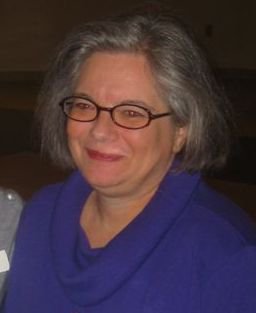For a person who is an alcoholic or for a family that contains an alcoholic, little or no acknowledgement is given to the recognition that a glass of wine can often be toxic.
One of the joys of Reconstructionist Judaism is the encouragement to question our behavior, our patterns and our observances. Sometimes, that’s a challenge.
“But we’ve always done it this way!” or “This is how your grandparents did it, and this is how we do it.” Or “What do you mean, we can’t do that?”
And yet, as Mordecai Kaplan emphasized: “The past has a vote, not a veto.”
So if we don’t rely on tradition to decide which rituals we observe and how we observe them, how do we decide what to do? Our practice is guided by our values — explicit or implicit. Values such as tikkun olam/repair of the world; dibuk haverim/cleaving to friends; gemilut hasadim/acts of lovingkindness and tzelem Eloheim/all are created in the image of the Eternal. These are values that guide our community life and, I believe, inform the home rituals we associate with the holidays.
Many of the rituals for the holidays we celebrate at home — Purim, Passover, Simchat Torah — involve celebrating with wine as a means of expressing gratitude for being able to celebrate together. Another practice is celebrating a b-mitzvah with abundant toasts of congratulations and good wishes. And each week, we celebrate Shabbat with candles, wine and challah.
The challenge is this: For a person who is an alcoholic or for a family that contains an alcoholic, little or no acknowledgement is given to the recognition that a glass of wine is often toxic.
Sobriety is not easy, and struggling to remain sober requires persistent diligence. It doesn’t take much — sometimes, just one drink — to begin the downward spiral back into the depths of alcoholic behavior. And yet, how often when someone declines a glass of wine do we push them to have “just one”? How many times do we question why they won’t have “just a little”? How many times do we have non-alcoholic options available that people can drink safely in celebrating with us?
Leviticus 19:14 tells us, “You shall not insult the deaf, nor place a stumbling block before the blind.” In other words, don’t set up a situation in which it becomes more difficult for someone to participate.
A main focus of many communities lately has been inclusion: How do we include those with physical limitations? How do we include those who learn atypically? Who don’t understand Hebrew? Who didn’t have a Judaically knowledgeable background while they were growing up?
We install ramps; provide large-print siddurim and assisted hearing devices. Our siddurim include both translations and transliterations — and many times, when we use Hebrew orally, we also provide translations. We offer a variety of adult-ed classes, along with numerous family-education programs. We encourage small communal groups within our larger communities so that people can find others with whom they feel comfortable.
We carry inclusion a step further by providing vegetarian options at our communal meals, by labeling ingredients present in dishes served and by making our communities “peanut-free” zones.
And we can take it one step further by providing nonalcoholic options.
We can decide not to press if someone says, “No thanks” to the offer of a drink. Allow them to share what they want with us, when they want to share it – not necessarily in front of a group of people.
We can also expand our reasoning for including non-alcoholic options to the possibility that overindulgence can result in impaired behavior: driving, supervising young children, cooking.
Celebration does not depend on alcohol. Even without alcohol, we can celebrate!
Routinely providing a variety of non-alcoholic options shows the kavod/respect we have for different members of our communities. In many cases, offering alternatives can be an expression of gemilut hasidim/lovingkindness. It can indicate an acceptance of individual differences. It can be a way of making our communities and our ritual practices open to all.
How might our home rituals look without a focus on alcohol?
For Purim, we can focus on the story itself; on the generosity of Mordechai in caring for his younger cousin, Esther; on the arrogance of Haman; on the courage of Esther and on the willingness of King Ahasuerus to listen to someone he cared about … and to change his mind.
Using our values to determine our rituals can have a profound effect on all participants. And a community that includes all will benefit from the skills and talents of each individual.

Mary F. Meyerson has been both a Jewish educator and director of education in the past 25 years. Her work has emphasized both community-building and encouraging questions for which there are no easy answers. When she was unable to find curricula that met her goals, she developed her own, along with teacher guides and corresponding materials for parents. As a founding member of RENA (Reconstructionist Educators Network), she has collaborated with educators nationwide on a wide variety of issues. Mary was also an early mentor with the Matan Program, which focuses on creating and sustaining inclusive settings in educational, communal and spiritual aspects of Jewish life. Mary credits her two (now adult) children with teaching her how to address different learning styles: “Much I have learned from my teachers, more from my colleagues, but most from my students.” She and her husband, Neal, have retired to Delaware and are enjoying life!







